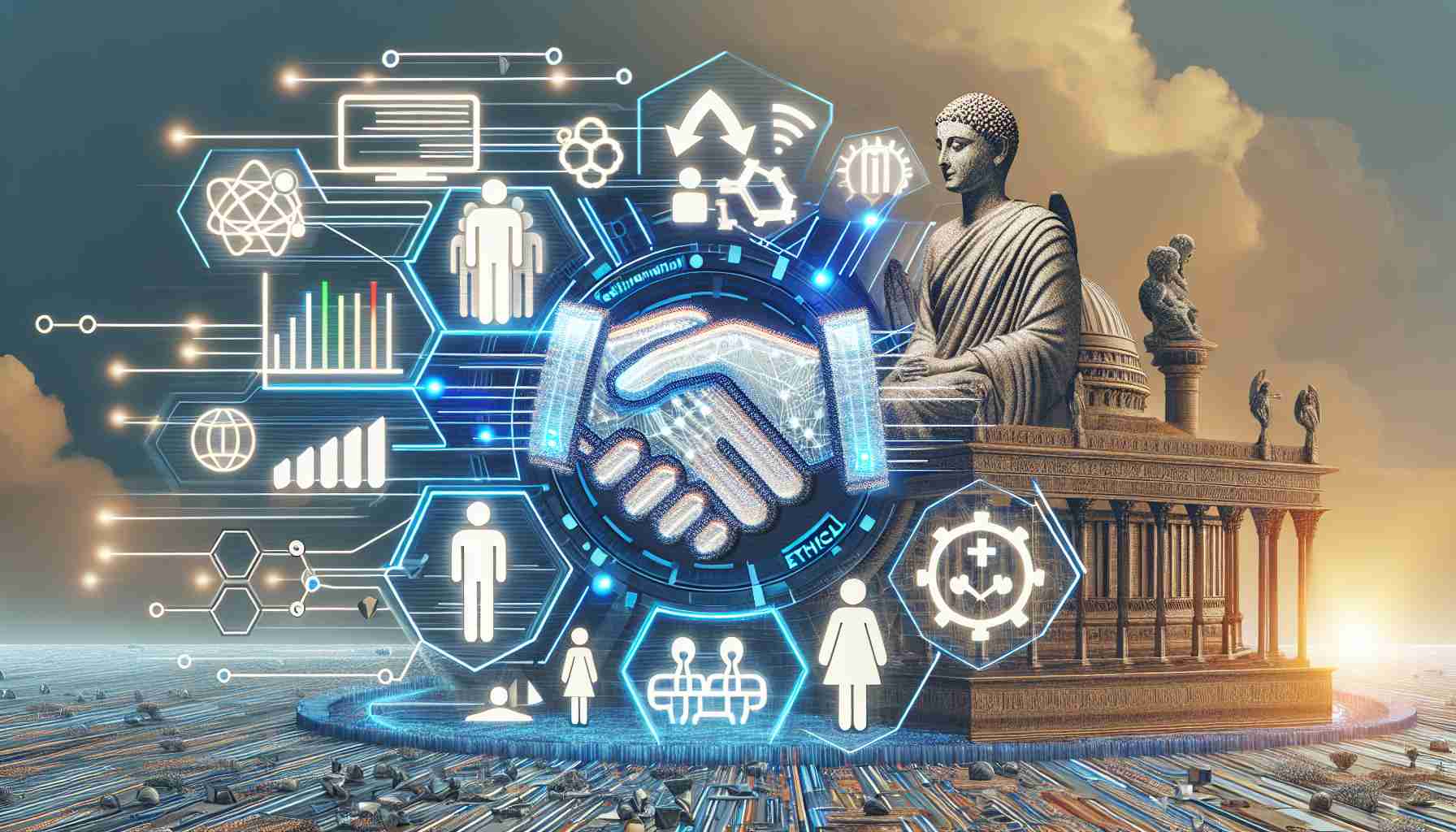Cisco Systems Embraces Ethical AI Principles
In a notable development on April 24th, Cisco Systems, internationally renowned for its networking technology prowess, signed the “Rome Call for AI Ethics,” aligning itself with the Vatican’s vision of a morally grounded artificial intelligence (AI) future.
AI Ethics Under Vatican’s Guidance
The President of the Pontifical Academy for Life, Archbishop Vincenzo Paglia, remarked on the significance of Cisco’s commitment to ethical AI. Recognizing the transformative power of AI, he suggested that the company will provide crucial technological expertise for AI applications, particularly in areas concerning data security and infrastructure.
Algoretics: A New Ethical Compass
Remembering the Vatican’s 2020 initiative to consider AI from an ethical standpoint, often referred to as “algoretics,” Archbishop Paglia emphasized the urgency of ethical reflections on AI development. The need for an ethical approach to AI transcends specific sectors and has become more pressing than ever.
Social Responsibility and Technology Development
Exemplifying corporate responsibility, Cisco’s Chief Executive Officer, Chuck Robbins, echoed the Vatican’s sentiments on technology. He stressed the importance of building trust at the highest level and fostering an inclusive future through technology.
Deepening Bonds with the Holy See
The Rome Call to Ethics in AI gained a new signatory in Cisco, following a special audience with the Holy Father at the Vatican, where discussions on ethical AI were a central theme.
Promoting a Culture of Inclusive Progress
Since its inception, major organizations like Microsoft, IBM, the Food and Agriculture Organization (FAO), and the Italian Ministry of Innovation have joined the “Rome Call.” This ethical framework is actively propagated by the “RenAIssance Foundation,” established by Pope Francis, to ensure that the benefits of technological advancements respect the dignity of every individual and the planet we share.
Given the information in the article, the addition of Cisco to the “Rome Call for AI Ethics” reflects an expanding consortium of entities from various sectors who are committing to the ethical development and implementation of AI technologies. Here are some additional relevant facts and considerations:
– AI and Ethics: Artificial Intelligence increasingly affects many aspects of daily life, including job automation, data processing, and even social interactions. Ethical considerations are essential to prevent biases in AI algorithms, which can potentially lead to discrimination and inequality. Developing AI within an ethical framework helps to ensure that these systems operate transparently and fairly.
– Global AI Ethics Initiatives: Numerous global entities and organizations, such as the European Union (EU), have released guidelines for AI ethics. For instance, the EU’s guidelines focus on trustworthy AI that should be lawful, ethical, and robust.
– Key Questions and Challenges:
– How can ethical principles in AI be consistently applied across different nations and cultures?
– What mechanisms will be used to ensure compliance with these ethical guidelines?
– Will the voluntary nature of these commitments be sufficient for meaningful oversight and enforcement?
– Controversies in AI Ethics: There is ongoing debate about whether current ethical guidelines are sufficient and how to balance innovation with ethical considerations. Some argue that self-regulation by tech companies is not enough and that government intervention is necessary.
– Advantages:
Involvement in ethical AI initiatives can help companies like Cisco establish themselves as responsible and trustworthy, which can be a competitive advantage. Ethical AI also aims to minimize harm and maximize benefits, promoting a more equitable society.
– Disadvantages:
Stricter ethical guidelines may slow down innovation and development in the AI sector. It may also increase costs for companies as they have to implement additional measures to ensure compliance.
– Related links: To learn more about Cisco’s role in technology and initiatives on AI ethics, interested readers may visit the main websites of involved organizations:
– Cisco Systems
– Vatican (Link to the main Vatican webpage; specific content on the “Rome Call for AI Ethics” might be found in their news or publications sections, as exists at the knowledge cutoff date)
– IBM (Another signatory of the “Rome Call for AI Ethics”)
– Microsoft (Another signatory of the “Rome Call for AI Ethics”)
One might also consider visiting ethical AI research centers and academic institutions that are likely to analyze and contribute to this discourse.

